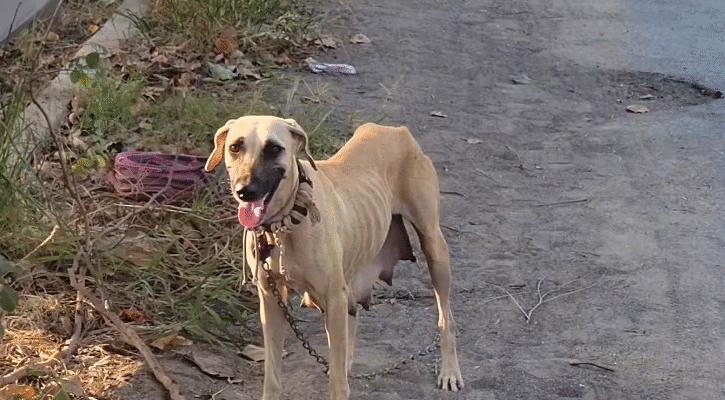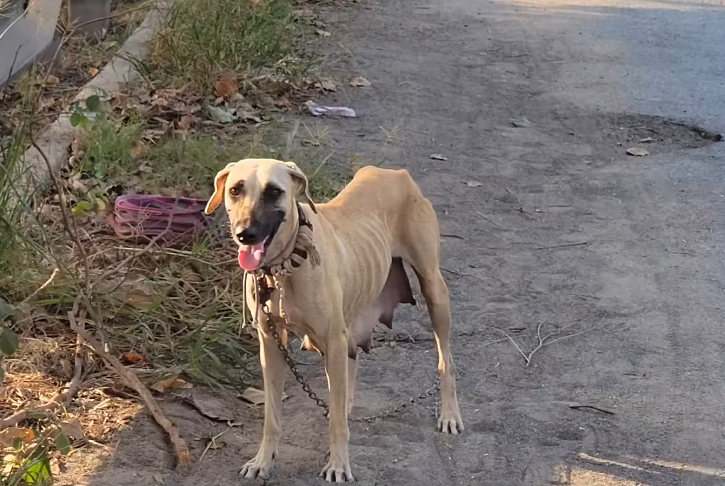
The morning was quiet, filled only with the distant hum of cicadas and the soft rustle of the trees. I was standing at the bus stop with my backpack slung over my shoulder, heart heavy and mind torn. I had made a painful decision — to leave my small village and move to the city for work. Life here had been beautiful but hard. My job offer was far away, and I couldn’t bring everything with me. What I didn’t realize then was that I was leaving behind more than a home — I was leaving behind Bingo, my dog, my loyal shadow, my family.
Bingo wasn’t just any dog. He was a mixed breed I had found as a trembling puppy behind my old house five years ago. Someone had abandoned him there in the rain. I still remember that day — he was so small he could fit in my palm, his fur matted and his eyes full of fear. I brought him inside, wrapped him in a towel, and fed him warm milk. From that moment, he decided I was his person.
He followed me everywhere — to the rice fields, to the market, even when I went jogging. If I went fishing, he’d sit by the riverbank, wagging his tail and barking at the fish that leapt out of the water. He slept at my door every night, guarding me like a soldier. Every morning, he greeted me with that same goofy smile and sparkling eyes that seemed to say, “Hey, it’s a new day. Let’s live it together.”
When I got the job offer, I was torn. The city apartment didn’t allow pets, and I couldn’t afford to pay for a place that did. I told myself it was only temporary — I’d come back for him once I settled in. My mother promised to care for Bingo while I was away. Still, when I looked into his eyes that morning before leaving, it felt like he already knew.
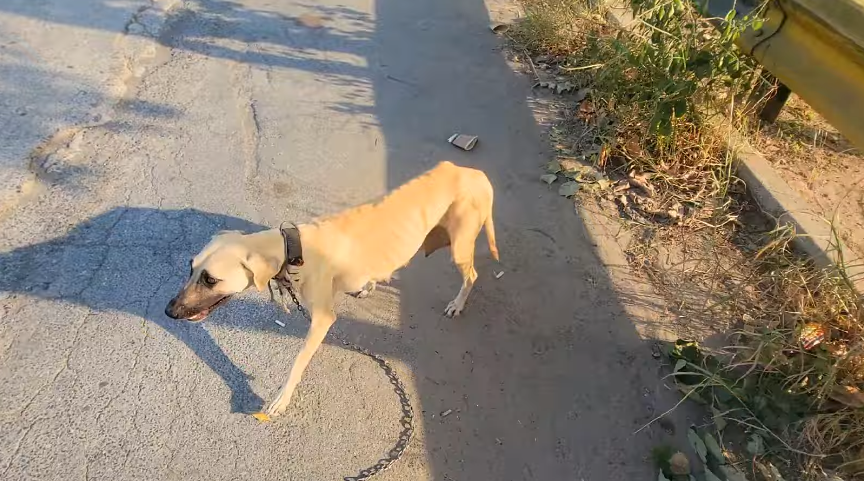
He sat by the doorway, head tilted, tail wagging weakly. I knelt beside him, hugged him tightly, and whispered, “Be good, Bingo. I’ll be back soon.” He licked my cheek, and I turned away before he could see the tears in my eyes.
The bus pulled out of the station, and I watched the countryside roll by. The further we went, the heavier my chest felt. After about an hour, I finally closed my eyes and tried to rest. But something made me glance out the window again — and what I saw froze me.
There, on the dusty road beside the bus, was a familiar shape running with all its might. His tongue was out, his legs trembling, but his eyes — oh, those eyes — were locked on me. It was Bingo.
At first, I thought I was dreaming. I blinked, but he was still there. He was running — chasing the bus with everything he had. The passengers noticed too. A child shouted, “Look! That dog’s chasing us!” People turned, some smiling, others frowning in disbelief.
I pressed my face to the glass and shouted, “Bingo! Stop! Go home!” But the sound of the engine drowned out my voice. His paws kicked up clouds of dust, his breath coming in short, desperate bursts. He had already run several kilometers — and he didn’t stop.
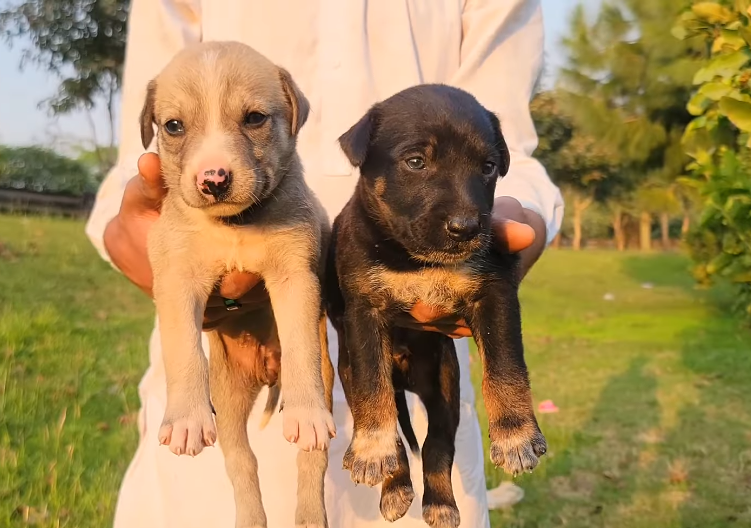
The driver slowed down when he saw the commotion, and I ran to the front, begging, “Please stop the bus!” The driver frowned but finally pulled over. Before the wheels even came to a full stop, Bingo collapsed by the roadside, panting heavily.
I jumped out and ran to him. He lifted his head weakly, tail wagging, as if to say, “See? I found you.” I knelt down and held him in my arms, tears streaming down my face. His fur was covered in dust, his paws bleeding from the rough road. He had run nearly 20 kilometers — just to be with me.
“Why, Bingo?” I whispered, stroking his head. “Why did you follow me?”
He looked up at me with eyes that held no anger, only love — pure, unbreakable love. In that moment, I realized something humans often forget: dogs don’t understand distance or time. They don’t care about jobs, money, or rules. They only know love. And for Bingo, love meant being with me — no matter how far.
I gave him water and food from my bag. He ate slowly, still trembling. The other passengers watched quietly, some wiping their eyes. One old man said softly, “Son, that dog doesn’t want to be left behind again.” His words cut deep.
I sat by the road for nearly an hour, torn between duty and love. Finally, I made a decision. I looked at Bingo and smiled through my tears. “Alright, boy. You win. We’re going together.”
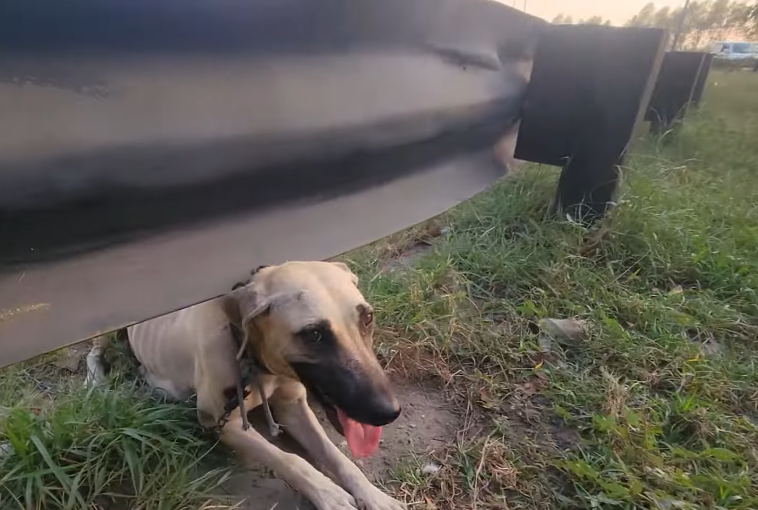
When I brought him on the bus, everyone clapped softly. The driver grinned and said, “That’s one loyal passenger.” Bingo sat beside me on the seat, his head resting on my lap, eyes closing peacefully. For the first time that day, I felt at peace too.
When we reached the city, things weren’t easy. My landlord complained about the dog, and I had to sneak him food and water in secret. But I didn’t care. Every evening, when I came home tired from work, Bingo greeted me with that same happy bark, his tail thumping like a drum. Somehow, his presence made everything lighter — the loneliness, the stress, the noise of city life.
Months passed, and I saved enough to move into a small room where dogs were allowed. Bingo finally had his space — a corner bed, a food bowl, and a balcony where he could watch the city lights. Sometimes I’d look at him and think about that day on the road — how far he ran, how much he gave.
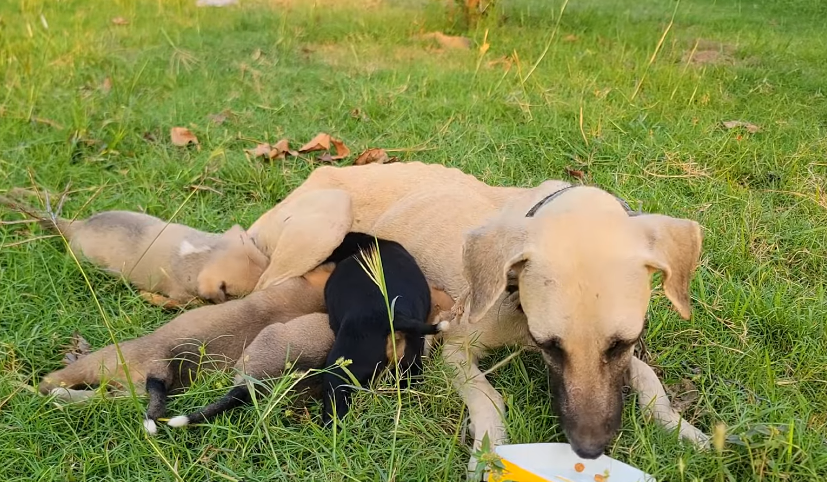
People often say dogs can’t speak, but I disagree. They speak with their eyes, their tails, their hearts. Bingo didn’t need words to tell me what he felt that day. His message was simple — “Don’t leave me. I’m yours.”
Now, years later, when I take him for walks, I sometimes see the faint scars on his paws — reminders of that 20 km journey of love. Each scar tells a story of loyalty that no human could ever match.
Every time I hold his leash, I whisper to him, “Don’t worry, boy. I’ll never leave you again.” And he looks up at me with that same spark in his eyes, as if he understands every word.
Because in the end, love doesn’t need to be spoken — it just needs to be felt.
And Bingo, my brave, loyal friend, felt it more deeply than anyone I’ve ever known. 💔🐶
